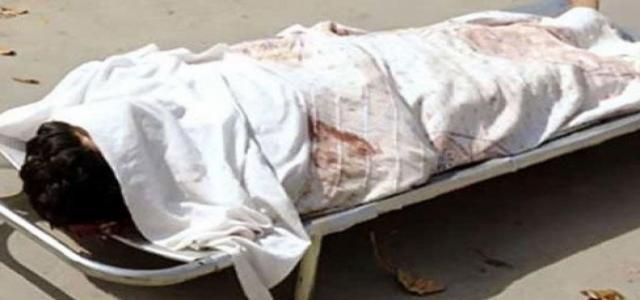- EGYPT
- August 4, 2015
- 8 minutes read
Three More Egyptians Die in Detention in 48 Hours Due to Coup Authorities’ Deliberate Medical Neglect

The Arab Organization for Human Rights (AOHR) said that the numbers of prisoners and detainees dying or getting killed inside the Egyptian prisons and detention centers are rising as junta security services’ inhuman policies in dealing with detainees continue.
AOHR stressed that the repressive practices and violations of human rights, the unprecedented rise in incidents of arbitrary detention and enforced disappearances, and the expansion of pre-trial detention coupled with the state of total impunity Egyptian authorities grant security forces, led to more deaths under torture, deaths due to illnesses after months of detention as coup authorities deny detainees proper medical care or release on health grounds as required by Egyptian prison administration law.
AOHR said three anti-coup detainees died in 48 hours (August 1 and 2, 2015) after their health deteriorated and then reached terminal stages, while prison administrations failed to release them or provide appropriate medical assistance.
A detainee called Ramadan Ibrahim Badawi, 46 years old, died in the Central Security prison in Sohag on Sunday, August 2, 2015 after suffering constant vomiting, diarrhea and fever – symptoms of an apparent poisoning. The initial medical report did not mention a specific cause of death. Badawi’s family said that they visited him on Friday, July 31, and that he was perfectly normal and did not suffer any symptoms of any illness or disease.
Another detainee called Ahmed Hussein Ghozlan, 52, died on Saturday, August 1 in Abadeya Prison in Damanhur, after the prison administration refused to transfer him to the General Hospital for essential treatment and care. Ghozlan’s family said:
"His health deteriorated on the evening of Thursday, July 30. His temperature rose rapidly and he felt very ill. Until the evening of July 31, the prison administration ignored the whole problem completely. Ahmed did not receive any medical care except from his cell-mates, who tried to reduce his temperature using their own clothes wetted with water. Then, he lost consciousness. After repeated appeals by his cell-mates, the prison administration transferred him to the prison hospital, refusing his family’s requests and pleas to transfer him to a better equipped or a private hospital for treatment at their own expense, until he died.
"He suffered inhumanly poor conditions in detention, including overcrowded cells and vindictive treatment from the prison administration. Also, he was suffering from high blood pressure and needed daily treatment. However, since his arrest on March 12, the prison administration prevented him from getting his necessary medical treatment or medicines."
On the same day (the morning of Saturday, August 1, 2015), yet another detainee called Ezzat Hussein Al-Salamoni, 57, died of intestinal blockage, inside Tora Prison. His medical condition started Saturday, July 25, 2015. Three days later, he was transferred to hospital where he remained in the intensive care unit for three days, during which his internal organs completely failed. He was then sent back to prison, where he died.
At least 262 detainees died or were killed in Egyptian jails and detention centers since July 3, 2013 (the day the military executed its traitorous coup in Egypt). Of those, 71 were killed in detention due to medical neglect in 2015.
London-based AOHR confirmed that the deaths were caused by brutal torture, prison-management, poor conditions, and denial of health care, as well as overcrowding and poor ventilation inside prison cells.
AOHR added that Egyptian authorities rather than open serious investigations into the dozens of deaths in detention, or take serious measures to prevent the recurrence of such crimes, they bolstered security forces’ total impunity, and in an unprecedented way increased arbitrary arrests, and amended laws to make it easier to convict opponents, journalists and defenders of human rights.
AOHR stressed that many of the people who are in prison now are political opponents, even if criminal charges had been brought against them without evidence ,or if they were detained on orders from the failing and highly politicized judicial system. Indeed, detention of any ‘suspect’ before any judicial process has become the norm in Egypt, in contradiction to international laws. In fact, Egyptian authorities are freely and increasingly repeating pre-trial detentions without justification, which makes the human rights situation even worse.
AOHR further stressed that all evidence, studies and analysis regarding detention centers and prison conditions indicate that should current policies continue, more detainees’ lives will be lost.
AOHR therefore called on the United Nations’ Secretary-General, the African Commission for Human and Peoples Rights, and the European Union to take practical urgent steps to rescue detainees, especially those who are ill, and to work for the release of all political prisoners.
Arab Organization for Human Rights in Britain
AOHREU
PO BOx 68981
London
NW26 9FY
Tel: 0044 (0) 203188 4107
Fax: 0044 (0) 2031884108
Email: [email protected]



